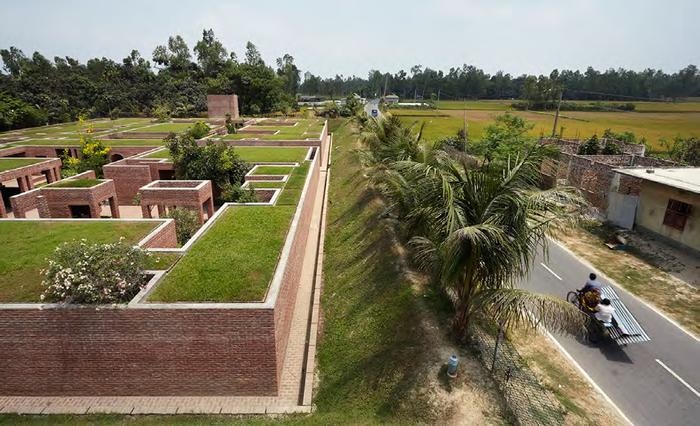Shahreen Mukashafat Semontee and Raquibul Hassan Bhuiyan ProposalThinking Water, Thinking FluidClimate- an integral part of our surroundings, but how do we perceive it? To us, the Bangladeshis, climate means the interplay of tropical seasons. In our country, monsoon comes with raindrops and give relief from scorching heat. Long awaited rain sometimes falls heavily and overflows the riverbanks, and flood occurs often. Sadly, the riverine delta that once flourished our agricultural economy, has also made it one of the most vulnerable ones to climate change. Living with the rhythms of the seasons had allowed the people to traditionally develop a particular building typology, one that empowered them to sustain their lifestyles adapting to this condition. Our language might give a hint at how we view floods. In Bengali, the term “borsha” refers to normal rainfall and fullness of the rivers, and “bonna” implies destructive flooding. These expressions reflect the awareness and adjustments of the common people to flood hazards. Their adaptations gave form to the traditional architectural style. And it didn't belong to a particular architect, but to the inhabitants, craftsman and builders of rural Bangladesh, who understood, improvised and lived in harmony with the free-flowing nature. The straightforward solution in our mind for flood protection is to raise the house over the water level. As a result, traditional stilt houses are seen in many flood prone areas in this region. The impoverished dwellers choose light and cheap building materials that are locally available like bamboo, jute and earth. Built on stilts with bamboo columns inserted in a foundation, they raise the homes safely above water. The use and recycling of these local materials made it possible for financially insolvent people to have a bare minimum protection against the flood. Here, the community fights together against the hazards, providing support to each other. But as climate is changing rapidly and unpredictably, architects are challenged to come up with more creative affordable solutions in our local context. As architect Kashef Chowdhury was designing a rural training centre in the floodplain Gaibandha, naturally the first solution was to lift the ground floor above the expected floodwater level. While planning that, the cost of foundation alone took three quarters of the budget. So, an alternative strategy was taken to excavate the site and building an embankment outside the whole site, protecting the structure from flood. The locally available handmade bricks were used for the entire construction for optimizing resources. This inclusive design of low cost, generosity and acceptability made the community more resilient. Thus, simplicity is achieved through solidarity. The Friendship Center, completed in 2011, proves that resiliency doesn't always have to come at a cost. Sustainability, affordability and community- these design aspects might weave a path towards resilience in this fast deteriorating context of climate change. A resilient design needs to be community inclusive and certainly not be costly. As we recognize the fluidity of future, whether the strategy is to inundate, elevate or building on low land, it has to be accommodated by flexible creative thinking and a paradigm shift in our attitude towards resiliency. Additional Help and InformationAre you in need of assistance? Please email info@berkeleyprize.org. |
|


